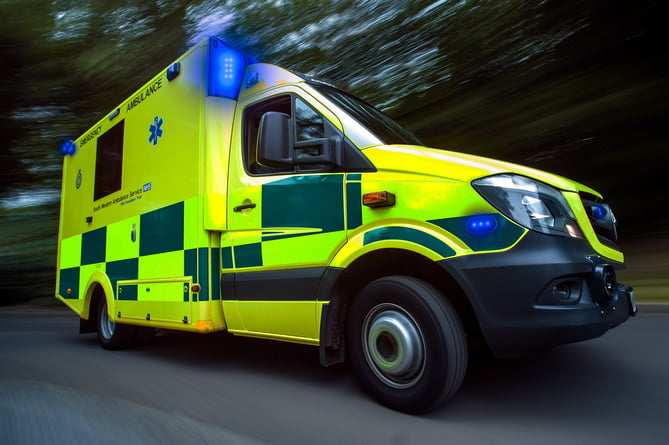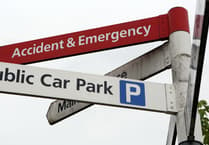The public are urged to only call 999 if they have a life-threatening emergency during Friday's (February 10) ambulance strike.
The South Western Ambulance Service NHS Foundation Trust (SWASFT) is again urging the public to use 999 appropriately during Friday's industrial action and to only call if it is a life-threatening or life-altering emergency.
On days where there is strike action, people should continue to call 999 if there is a medical or mental health emergency [when someone is seriously ill or injured and their life is at risk].
People are also asked to ensure they have enough medication in stock, both prescription and self-care.
Ambulances will be able to respond in these situations, but this may only be where there is the most immediate risk to life.
Where the situation is not life-threatening, people should seek alternative support through NHS 111 online or through calling NHS 111, and where possible, it is advised that members of the public arrange alternative transport if they need to visit a healthcare facility.
While the NHS remains open to anyone that needs it, there are some things people can do ahead of and during the upcoming industrial action to help ensure services can care for everyone who needs it, including having enough medication in stock, both prescription and self-care.
Will Warrender, Chief Executive of (SWASFT) said: “I want to take this opportunity to repeat my thanks to the communities that we serve. We have been asking you to support us by only calling 999 for life-threatening emergencies, and so far your continued support has meant we have been able to prioritise those patients most in need of our help.
“As we look ahead to Friday’s industrial action, we are again asking for your support, because we absolutely must have crews available for the most life-threatening conditions, and we will be prioritising these patients first.
“This means there will be other patients waiting for an ambulance, and we will get to them as soon as we can. We are sorry that we may be unable to respond to them as quickly as we would like.
“If you are waiting for an ambulance, please do not call back asking for an estimated time of arrival. We cannot provide this information and it blocks our lines for other callers.
“You should also be aware that less serious, non-life-threatening incidents may not receive a response for the duration of any strike.
“Please be reassured that we are doing all we can to manage winter pressures and the upcoming industrial action, including receiving military support during industrial action days, which will allow our ambulance clinicians to crew more ambulances and reach patients more quickly.”
The ambulance service issued the following advice on which service to call:
Self-care – visit online for self-care advice for things like grazed knees, coughs and colds
Pharmacy – visit your local pharmacy for headaches, upset stomachs, aches and pains
NHS 111 – visit online or call 111 for advice and support 24 hours a day, seven days a week
GP – call your GP for symptoms that won’t go away
Minor injuries unit – attend your local minor injuries unit for urgent not life threatening conditions and injuries such as sprains, fractures and burns
999 – call 999 for life-threatening emergencies such as cardiac arrest, loss of consciousness, fits that aren’t stopping, chest pain, breathing difficulties, severe bleeding, severe allergic reactions, suspected stroke and serious head injuries.



